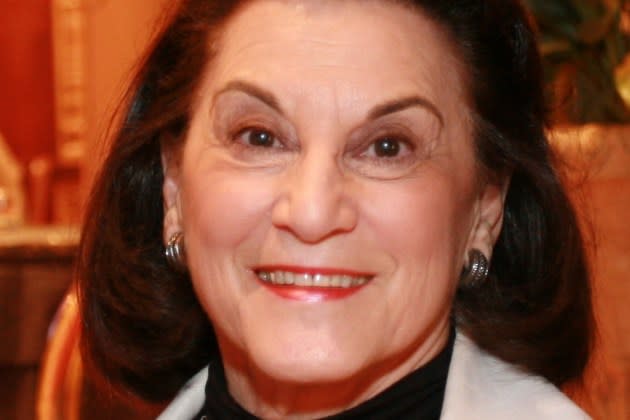California Fashion Association President Ilse Metchek Stepping Down

After almost 30 years representing the movers and shakers in the state apparel and textile industry, the California Fashion Association is undergoing a major change.
The Los Angeles-based association, which 10 years ago had 400 members, is merging with the California Retailers Association in northern California.
More from WWD
AI Can Revolutionize E-commerce, Says Svetlana Kordumova, Founder and CEO of Pixyle.ai
EXCLUSIVE: The Brooklyn Nets' Fashion Brand Berō Opens Storefront
The move comes as CFA membership has dwindled over the years to 143, and it was difficult to find a replacement for Ilse Metchek, the organization’s first and only president who headed the nonprofit since it was incorporated in 1995.
Metchek had considered shuttering the group that is the industry’s voice on several issues, including federal and state legislation and matters facing L.A. as the largest apparel manufacturer in the country.
“Succession planning had been on the books for 15 years,” Metchek wrote to CFA members when she recently announced the merger. “However, financial constraints resulting from inadequate membership participation make it impossible to maintain two ‘executive’ salary levels. In reality, even getting an effective administrative assistant was a ‘reach’ based on the income derived.”
She said a conversation followed with the California Retailers Association, a 60-year-old nonprofit based in Sacramento, about a merger because both organizations often address the same topics affecting their industries. “They are currently working on the issues that affect all of California’s major retailers for apparel, home furnishings and sporting goods,” Metchek noted. “Our problems in our industry are now their problems, from shipping to legislation to education.”
She notes that theft is another concern affecting both retailers and manufacturers as well as sustainability, new technologies, minimum wage and waste management.
When Metchek announced she was thinking of retiring, there was an outpouring of people who didn’t want to see her go. “Ilse, you have kept the voice of the industry alive and made this town a player,” wrote Jonathan Kaye of Kayo of California, a longtime Los Angeles apparel manufacturer.
“I’m glad to hear you are not retiring,” wrote Maureen Storch, senior vice president of membership at the American Apparel & Footwear Association. “Congratulations on your merger with the CRA.”
“You have done an amazing job,” wrote Ed Mandelbaum, president of the bicoastal Designers & Agents contemporary fashion trade show launched in 1998.
Metchek is stepping down as CFA president, but she will become an independent industry consultant to the association, helping to write the CFA newsletter and provide other newsworthy information. The CRA will distribute the CFA newsletter and solicit continued membership. In addition to advising the CFA, Metchek will consult with different clients for specific programs, create seminars and analyze current events and how they affect the textile and apparel industry.
Organizing the California Fashion Association was in place a year before an explosive apparel scandal took place in 1995. Authorities found as many as 80 workers sewing clothing in slave-like conditions in an apartment complex surrounded by razor wire in El Monte, a Los Angeles suburb. Some of them said they had been there for years and were unable to leave as they paid off debts allegedly incurred for bringing them from Thailand to the United States. News of the scandal ricocheted around the country and was a black eye for the L.A. apparel industry.
L.A. Mayor Richard Riordan wanted to prevent this kind of incident from happening again. As a result, Metchek was tapped to lead the newly formed non-profit to promote awareness of the industry, disseminate information to manufacturers, educate the public and do outreach.
In many ways, Metchek is the glue that keeps the industry together with her more than 50 years of experience. For 17 years, she worked for Anjac, a major clothing manufacturer in downtown Los Angeles, where she started as a designer and merchandiser and eventually became president. In 1983, after her first husband, Mitch Metchek, died, she took $250,000 in insurance money and bought Anjac to control her own destiny. She renamed it Ilse M, making dresses until she shut the company in 1991.
She pivoted to being the president of White Stag Inc., a division of Warnaco Industries, for a few years, and then moved to the California Market Center, a hub of apparel and textile showrooms, where she was an executive until taking over the CFA.
She has diligently fought to preserve the industry and retain the now 40,000 apparel and textile manufacturing jobs that make L.A. the center of U.S. clothing production, which never stays the same. “From day to day, week to week, month to month, it is constant change,” Metchek said. “It may be bad. It may be good, but you are never bored.”
Best of WWD
